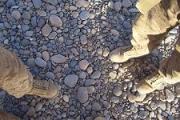Is civil-military cooperation vital to the success of NATO's mission in Afghanistan?
To what extent is ground-level civil-military cooperation the key to the success of NATO's mission in Afghanistan?
What place does ground-level civil-military cooperation have in the wider strategy of NATO in Afghanistan?
Should civil-military cooperation become the centre point of the counterinsurgency campaign in Afghanistan?
What civil-military cooperation exists on the ground in Afghanistan, and has it been successful?
In the case of Afghanistan, should military units adapt to tackle non-combat political objectives?
Should soldiers be expected to perform political and diplomatic roles on the ground in Afghanistan?
How can military forces in Afghanistan balance combat success with civil-military reconstruction?
To what extent are military forces and their civilian counterparts working towards different objectives in Afghanistan?









Bookmarks